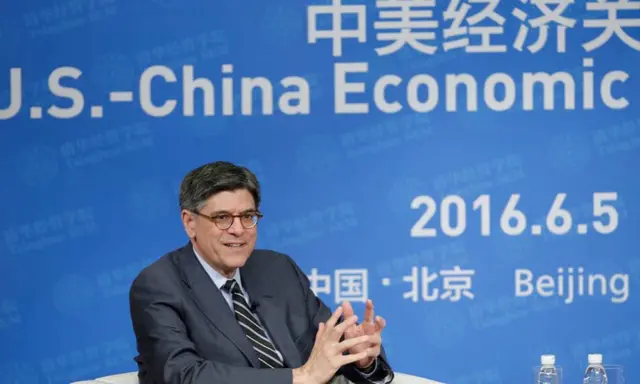The 8th US-China Strategic and Economic Dialogue (SED) starts on Monday and finishes on Tuesday in Beijing.
What is the US-China Strategic and Economic Dialogue?
The SED is a high-level dialogue for the United States and China to discuss a wide range of bilateral, regional, and global economic and strategic issues. It was established in April 2009 by US president Barack Obama and former Chinese president Hu Jintao. High-level representatives from both sides and their delegations meet annually in capitals alternating between the two countries.
Why is the SED important?
The SED is the flagship dialogue for connecting the work of the Chinese and US governments. It brings together on a regular basis cabinet secretaries and representatives of multiple agencies from both sides. It sets the goals and direction of the two countries’ relationship and puts a floor under the relationship capable of absorbing stress. This year’s SED will be the last one for the Obama administration.
Who will attend?
State Councillor Yang Jiechi and Vice-Premier Wang Yang will join their respective US co-chairs, US Secretary of State John Kerry and Treasury Secretary Jacob Lew, along with members of the Chinese delegation and their US colleagues for the dialogue.
The Delegates listen to opening remarks by China's State Councillor Yang Jiechi and then-US Deputy Secretary of State William Burns (both not pictured) at the US-China Strategic and Economic Dialogue in Washington in 2013. Photo: Reuters
Chinese delegation includes ministers or deputy ministers of finance, commerce, agriculture, science and technology, foreign affairs, education and culture. Central bank governor Zhou Xiaochuan and China’s special representative for climate change Xi Zhenhua will also attend.
The US delegation includes Deputy Secretary of State Antony Blinken, Undersecretary of State for Economic Growth, Energy, and the Environment Catherine Novelli, Assistant Secretary of State for East Asian and Pacific Affairs Danny Russel, and other representatives from various agencies.
What will be on the agenda?
China’s escalating maritime disputes with its neighbours in the South China Sea, its call for greater communication over the US Federal Reserve’s interest rate decisions, and the US-China Bilateral Investment Treaty are set to be high on the agenda.
Cybersecurity, Hong Kong’s political and economic status, North Korea, Taiwan, Sino-US joint efforts to counter Islamic State and peacekeeping in the Middle East will also be discussed.
Among other issues for discussion are Sudan and South Sudan, clean energy, wildlife trafficking, ocean conservation, and civil aviation.
Programme:
Apart from sessions to be held surrounding the issues mentioned above, Chinese officials will give eight briefings on Monday and Tuesday.
Monday:
China’s special representative for climate change Xie Zhehua on the special joint meeting on climate change.
Finance Minister Lou Jiwei on macro economic outlook and policy.
Vice-Commerce Minister Zhang Xiangchen on trade and investment.
Vice-Agriculture Minister Qu Dongyu on Sino-US agricultural cooperation.
Tuesday:
Science and Technology Minister Wan Gang on science-based innovation and cooperation with the US.
People’s Bank of China governor Zhou Xiaochuan.
Vice-Culture Minister Ding Wei on Sino-US cultural communication mechanism.
Vice-Foreign Minister Zheng Zeguang, Vice-Finance Minister Zhu Guangyao, and Vice-Education Minister Hao Ping on achievements of the dialogue.
(SOUTH CHINA MORONIG POST)
 简体中文
简体中文

